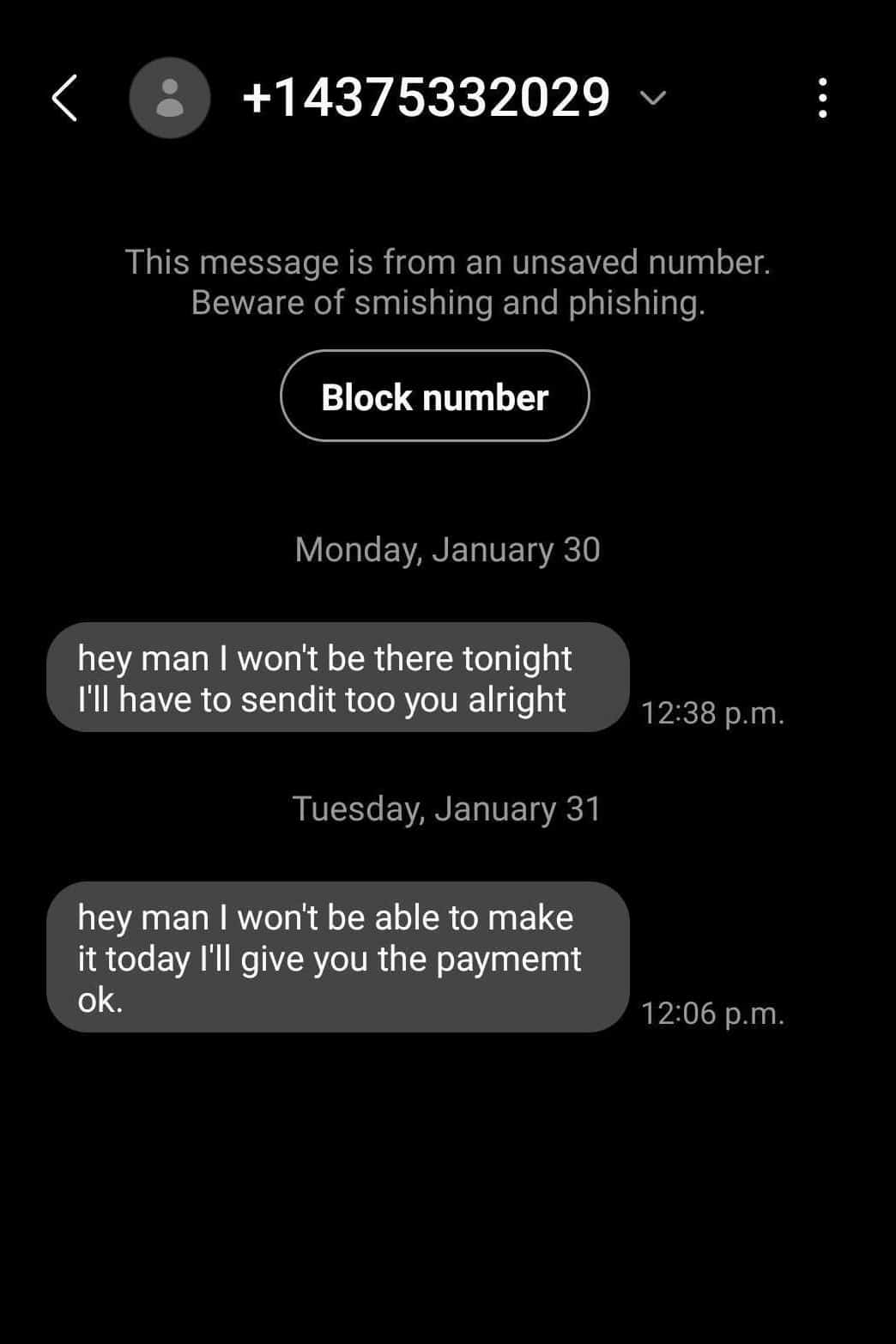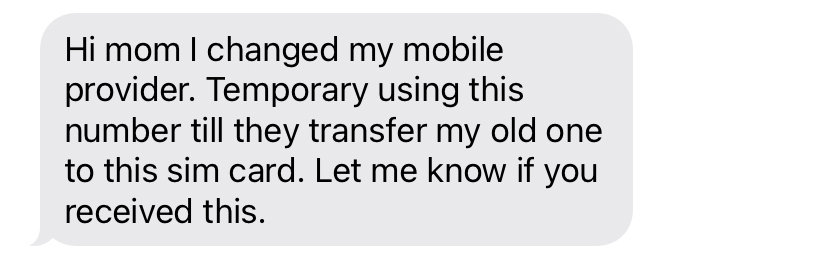Buddy text scam circulating in Mississauga and Brampton
Published February 1, 2023 at 10:50 am

A text message scam that looks like it’s coming from a friend or family member is circulating in Mississauga and Brampton.
If you have received a message that looks like it’s from a friend but you have no idea who the person is, it could be a common phishing scam.
“Hey man I won’t be there tonight I’ll have to sendit [sic] too you alright,” one message reads.
Then the same person sends a follow-up message: “hey man I won’t be able to make today I’ll give you the payment ok.”
Fortunately, some cellular providers are now providing warnings that this could be a “smishing and phishing” scam.
A variant of phishing, smishing victims can be deceived into giving sensitive information to a scammer through text message and may be assisted by malware or fraud websites.

This type of scam has the culprit acting like someone who appears to know you and lures you in with a friendly message.
Other examples include a message that might seem like it’s a wrong number or the scammer might look like it is from a family member.

The scammer is trying to establish a personal connection to gain trust, Bill Boisvenue, a cyber security expert with B.S.C. Solutions Group based in Brampton told CityNews.
You can block the number but scammers can easily switch numbers.
Rogers suggests not clicking on any links.
“Doing so may expose your device to malicious web pages or cause apps containing viruses/malware to be installed on your device,” Rogers says on their website.
Providing personal information could allow cybercriminals to steal your identity, empty your bank account, or install malware on your phone.
People can report the suspicious or unsolicited message for investigation by forwarding it via text message (SMS) to 7726 (SPAM).
The Canadian Anti-Fraud Centre offers the following advice:
- Don’t click on links from unsolicited messages
- Don’t download attachments from unsolicited messages
- Watch for spelling mistakes
- Don’t trust a message just because the email address looks legitimate; fraudsters can spoof the address
For more information on scams, visit the Canadian Anti-Fraud Centre website.
INsauga's Editorial Standards and Policies